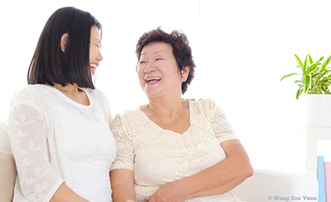(Alzheimer’s Disease Research Center)
Caregivers have had a very tough job over the past few months. Many have had to monitor their loved one for symptoms, manage underlying conditions, and limit their engagement with others, all while continuing to manage their loved one’s day-to-day needs. Aside from the basics, hand-washing and sanitizing, here are some tips and ideas to help you safely make the best of this time.
Help from Outside:
If you have someone coming in your home from outside, whether that be home health care or a medical provider, they should continue to follow the same guidelines. Ensure they are using Personal Protective Equipment (PPE) and following guidelines put in place by their employers.
Medical Care:
You are likely in a position where you must manage your loved one’s routine medical care. Primary providers (physicians, nurse practitioners, etc.) can bill for telehealth with Medicare and Medicaid patients. Call the doctor’s office and see what procedures they have in place for handling routine visits and visits related to any concerns you may have.
Social Distancing:
This one has been difficult. Social distancing has limited interaction with family, children, grandchildren, neighbors, and friends, which can often lead to feeling isolated and lonely. You can still promote social interaction (just not physical) by utilizing video chats, writing letters, talking on the phone, etc.
Seek More Home Engagement Opportunities:
Some caregivers have used this time to become more connected to their loved one. Though it is important to keep a routine, adding extra engagement opportunities throughout the day can benefit both you and your loved one. Cook together, put a puzzle together, reminisce over old photos, etc.
Loved Ones in Facilities:
Though in-person visits have been restricted, see if the facility can help you make contact at a distance. Could they help put a phone call through? Does the facility have WiFi? Do you have an extra phone or tablet your loved one could use to video chat so they can see your face? Get creative!
Pay attention to your own isolation and loneliness as a caregiver. Following the rules likely means you are finding yourself more homebound. Check-in with yourself to see what emotions you are feeling. Plan with family, friends, and neighbors for regular contact, whether that is over the phone, video chat, or a social distancing visit. If a friend or family member can come in to be with your loved one for brief periods of time, seek and accept that help, while of course observing all the rules when you return.
If you are alone and feeling down, take action. Try to go out for a walk, listen to your favorite music, spend time with nature, or read a good book. We will make it through this.
Source: “Caring in a time of Coronavirus: A message from your Alzheimer’s Disease Research Center”



